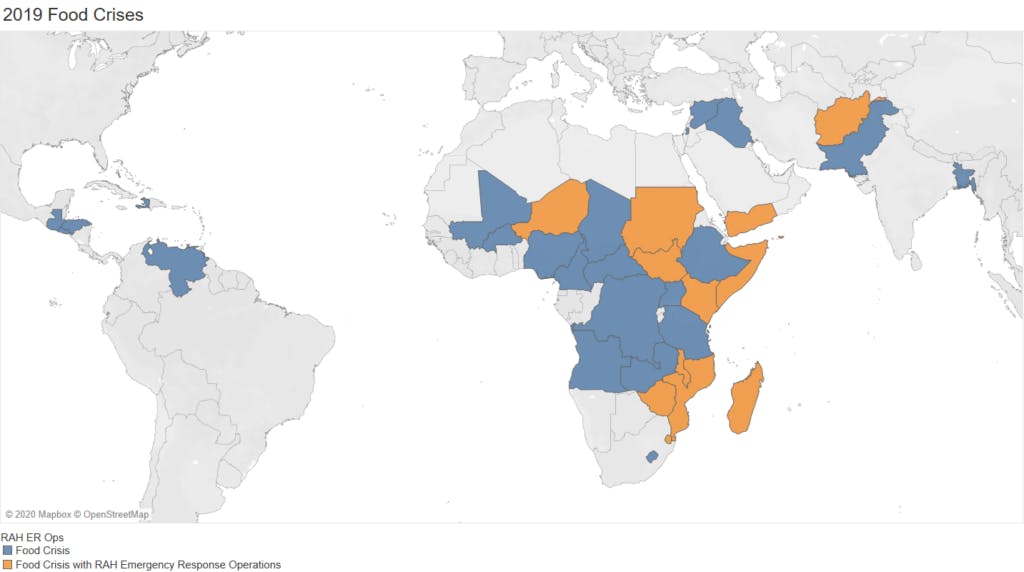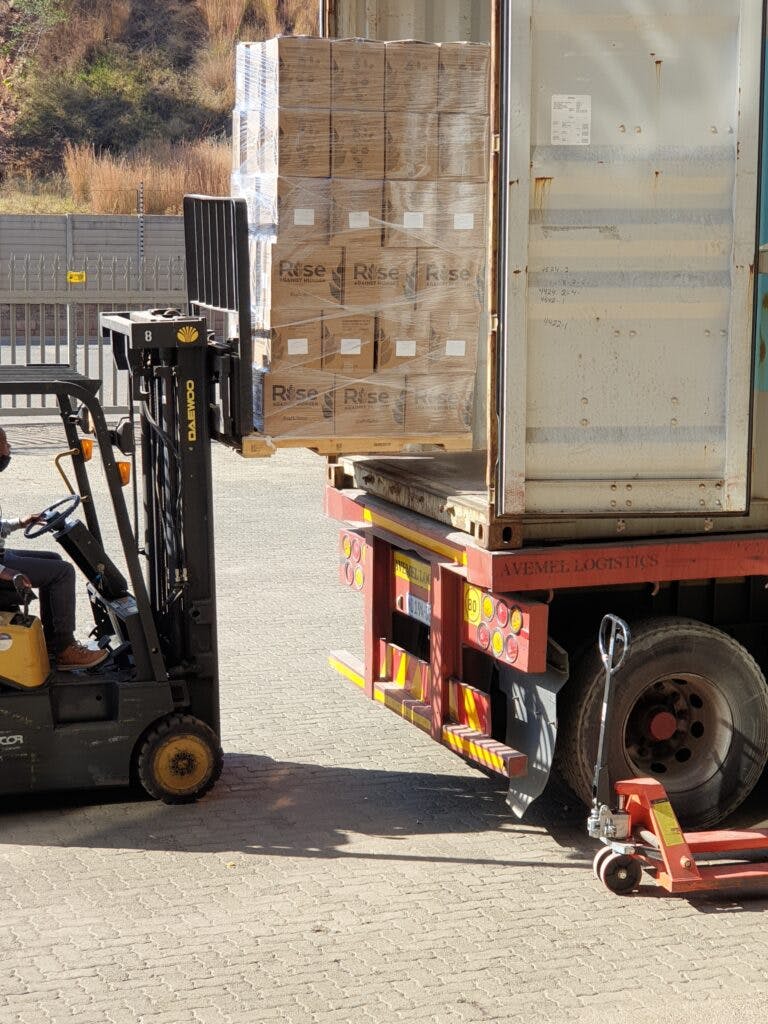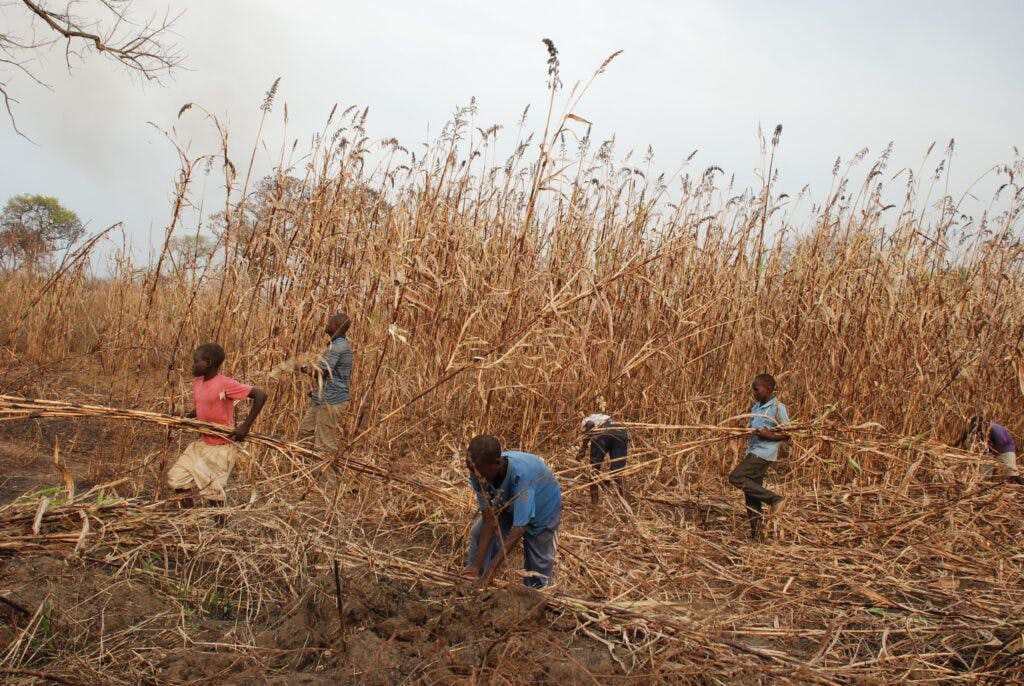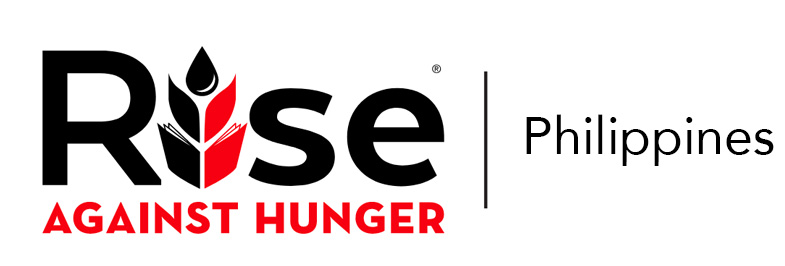Rising to Respond to Famines of “Biblical Proportions"

In recent weeks, we’ve become increasingly concerned after seeing multiple reports about COVID-19’s potential to exacerbate already existing food insecurity. Countries around the world are facing the possibility of famines of “biblical proportions.” The number of people living in a food crisis, 135 million, is the highest it has been since the inception of the World Food Programme’s Global Report on Food Crises in 2017. Crisis in this context means that acute malnutrition rates are higher than usual, or that people are able to feed themselves but only at the expense of their livelihood or to the detriment of their ability to cope with the crisis.

Essentially, there are extremely challenging circumstances at hand that require serious intervention. The number of people facing acute hunger could double by the end of 2020 as a result of the global COVID-19 pandemic. Children are especially at risk, as the closures of schools to prevent the spread of the disease deprives them of the daily meal they would typically receive there.
While conflict is the primary contributor to the worsening food crisis, extreme weather and economic blows are serious threats as well. The countries of highest concern are Yemen, the Democratic Republic of the Congo, Afghanistan, Venezuela, Ethiopia, South Sudan, Sudan, Syria, Somalia, Nigeria and Haiti. In these countries, we fear that lives may be saved from COVID-19 only to be lost to hunger.
In many of these countries at risk, Rise Against Hunger is playing a key role in meeting the immediate needs of over 500,000 people. I’d like to share more about our response efforts below.

In Somalia, we’re responding to both drought and floods and reaching nearly 30,000 people. This wave of disasters is characteristic of extreme weather that is becoming the new norm in Somalia due to climate change.
In Southern Africa, we’ve partnered with the Adventist Development and Relief Agency to implement the Southern Africa School Feeding Initiative, which began in 2017 as a relief and recovery project in response to the El Niño droughts. About 50,000 students in Mozambique, Madagascar, Eswatini, Zimbabwe and Malawi receive one hot meal each day at school. Now, the project is moving into its next stage as we pilot a homegrown school feeding program in Zimbabwe. Our aim is to remove reliance on imported food assistance and engage local smallholder farmers to procure food to be included in school menus.

In Afghanistan, we’re responding with Muslim Aid USA to COVID-19 through the Ramadan Emergency Food Distribution. Through this initiative, 1,000+ households currently on lockdown to prevent the spread of COVID-19 will receive food assistance.
In South Sudan, we’re supporting a therapeutic feeding program to treat severe acute malnutrition associated with the deadly infection known as kala-azar, as well as working to meet the food needs of several orphanages across the country.

We’re providing Rise Against Hunger meals and buying over 10 metric tons of fresh food for distribution to about 400,000 Venezuelan migrants in Colombia.
We’re addressing acute hunger in Yemen by working with local organizations to distribute food assistance to 660 internally displaced families, targeting households with malnourished infants and children and pregnant and breastfeeding women.

While we’re in uncharted territory, the fight to end hunger marches on. Rise Against Hunger pledges to continue to support these emergency response operations and embark on similar endeavors in the future despite the impediments such as COVID-19. As we navigate this uncharted territory, I ask that you join us. The support of our partners and Hunger Champions around the globe is more important now than ever before, and I am grateful for your commitment to our mission.

